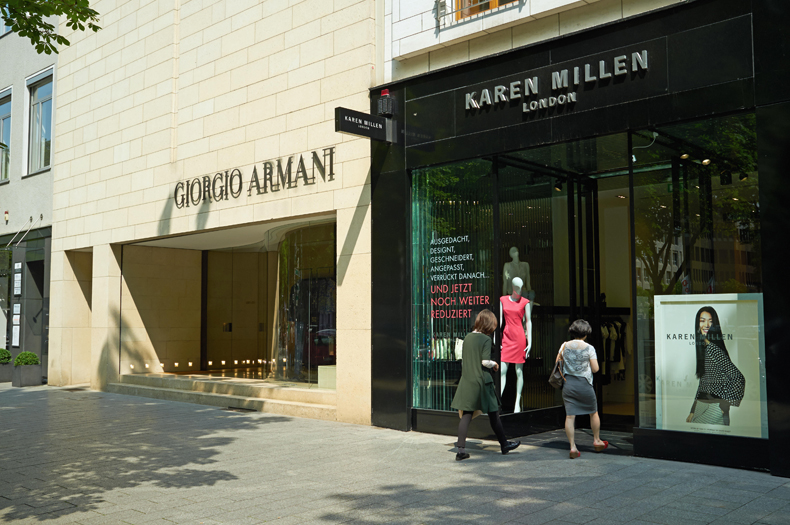But that’s my name!
Although your name can work as a strong brand identifier, there are also potential problems and obstacles to bear in mind.

What’s in a name? Well, quite a lot actually. Your name is your identity, so often it seems an obvious choice when it comes to naming your brand, particularly in the fashion and cosmetics industries.
The benefits of using your own name

There can be benefits of choosing your name as your brand. When you are the designer or the creator of a product, it is often the case that the success of the product rests on you, and so your name underpins the reputation of the brand.
Legally, a key benefit of using your own name as your brand name is that you are less likely to infringe third party rights thanks to the “own name defence”.
Within the UK and EU, a trade mark cannot be infringed by someone using their own name in the course of trade, providing they are using it in accordance with honest practices.
It is important to bear in mind that the “own name defence” only works if use of the name is not materially different from your name or the name you are known by.
This means that if John Madris wanted to use “Madris London”, the “own name defence” would not apply as Madris London is too far away from John Madris, but use of John Madris London would likely be included within the “own name defence” because ‘LONDON’ would be considered merely descriptive of geographic location, providing the goods or services had a connection with London.
Typically, when creating a new brand name, it is important to conduct trade mark searches prior to use and registration to identify any earlier third party marks that might present an infringement risk or be used as a basis for opposition against the trade mark application.
Even when using your own name as your brand name, you should still treat it as a ‘brand’ and protect it as a trade mark so that you can prevent others from using or registering a similar name.
This is particularly relevant as the brand grows and becomes exposed to the risk of counterfeiting.
Future Proofing is key
It is important to think about the future of your brand and the possibility that you may

ultimately decide to sell your business.
If your brand is ‘you’ then the goodwill and reputation of the brand will intrinsically be linked to your name. If you decide to sell your business, you will likely be selling your rights in the name and transferring any IP rights connected to the business to the acquirer.
It is important to seek legal advice before agreeing to any contractual terms around the sale of the business and what this means in relation to your future use of your name.
It will also likely mean that any future business venture will need to be under a different brand name unless the contractual terms of sale explicitly allow otherwise.
There are lots of examples across the fashion and cosmetics industries of individuals who have set up successful businesses under their own names and then subsequently sold their businesses (E.g., Karen Millen, Bobbi Brown, Jo Malone, Liz Earle).
One famous example is the wedding dress designer Elizabeth Emanuel.
Elizabeth Emanuel designed Princess Diana’s wedding dress and operated her business under the name Elizabeth Emanuel.
She subsequently sold her business, signing over all of the rights, all its assets, the registered trade mark and goodwill in ELIZABETH EMANUEL (i.e., her name) to Elizabeth Emanuel PLC. This company then went into administration, and the trade mark was sold to Oakridge Trading.
It took 25 years for Emanuel to finally be allowed to create garments and showcase them under her own name, but this wasn’t due to a Court win, this was down to an agreement between the current owner of the rights, Boi Group, and Emanuel.
The Court held that as the rights to the name ELIZABETH EMANUEL had been legally assigned with her consent, she was not the legal owner of the trade mark – even though it was her name!
Karen Millen also ran into issues after she sold her majority share in the Karen Millen fashion business, Karen Millen Fashions Limited.
The terms of the sale prevented Karen Millen (the individual) from using her name (or anything similar) in relation to a similar or competing business.
Karen Millen (the individual) subsequently sought to use her name in relation to a homewares business, but the Court held she was unable to do so under the terms of the sale purchase agreement.
Summary
Using your own name as a fashion designer or fashion retail business can have lots of advantages and can result in very strong brand recognition and brand power. However, it is important to ensure that you think about the future direction of the business and always seek legal advice around:
- whether brand clearance is advisable or necessary, even where you are intending to use your own name; and
- in relation to any intended sale of the business, or contractual terms around investment.
It is also important to think about what your name means to you and whether you would ever be comfortable in handing over the rights to it to an acquirer of your business.
If not, it would be sensible to consider use of a different brand name so that you are not limited in the future.


